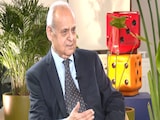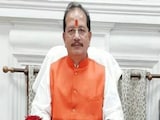Hours after China's top legislature convened a special meeting last week to remove foreign minister Qin Gang, photos and mentions of the 57-year-old started disappearing from his former ministry's website.
While some of this information reappeared days later, Qin does not feature on the website's list of "former ministers" and a search for his name turns up: "Sorry, Qin Gang is not found."
In fact, he has not been seen in public for more than a month.
The foreign ministry's brief explanation weeks ago that this was due to health reasons, a remark later excised from official transcripts, has failed to stem a swirl of speculation not just about his fate but on how the whole saga reflects on the man that supported his meteoric rise, President Xi Jinping.
China named veteran diplomat Wang Yi to replace Qin, but gave few further clues on the reason for the change.
Foreign ministry spokeswoman Mao Ning on Thursday said Beijing will release information in a timely matter regarding Qin and opposes "malicious hype".
She was responding to a reporter who asked about transparency around Qin's removal, one of more than 25 questions mentioning Qin at press briefings in recent days that the ministry has ducked.
SPECULATION SWIRLS
China's Foreign Ministry and the State Council Information Office, which handles media queries on behalf of the party and government, did not immediately respond to requests for comment on this story.
Qin's unusually long and unexplained absence, his abruptly cut-short tenure, as well as other strange happenings like the ministry's website, mean speculation will continue to swirl.
"The truth will eventually come out - it usually does in China, although it sometimes takes months or years - but the way he was dismissed makes it unlikely that it was for health reasons," said Ian Johnson, senior fellow for China studies at the Council on Foreign Relations.
Beijing-based political analyst Wu Qiang said he could "almost certainly rule out health as the real reason". If that was the case, the state could have assigned a deputy to fill in for him rather than officially removing him, Wu said.
Qin lasted barely half a year in the role after becoming one of the country's youngest foreign ministers in December 2022, a position with a five-year tenure.
There are precedents for officials disappearing and being scrubbed from the collective memory in China.
Industry minister Xiao Yaqing vanished for nearly a month last year before it was revealed he was being investigated for corruption.
The foreign ministry removed all online traces to its former chief protocol officer Zhang Kunsheng who was found guilty of corruption and using his position of power to obtain sex in 2016.
Such erasures go back decades in China.
A state-commissioned painting depicting the historic moment when Mao Zedong stood on top of Tiananmen Gate to announce the founding of the people's republic was altered three times between 1955 and 1972 to erase officials that subsequently fell foul of Mao.
'ONE-MAN POLITICS'
But other observers say, in Qin's case, it is far from clear cut.
The National People's Congress Standing Committee that convened on Tuesday did not remove Qin's other title of State Councillor, a cabinet member who ranks higher than a minister, despite having the power to do so, experts say.
And despite the omissions from the foreign ministry's website, a portrait of the former U.S. envoy remained hanging prominently on the wall of the Chinese embassy in Washington on Thursday, according to a Reuters witness.
Analysts also point out that Qin would have gone through a rigorous vetting process to take the role just months ago.
Communist Party regulations say leaders are vetted based on their ideologies, work performance and adherence to party discipline, while they also have to declare details about their family, including whether they have lived overseas and what assets they have.
Since coming to power in 2012, Xi has put in place a slew of regulations to combat corruption and enforce party discipline in a bid to address corruption in ways that analysts say have consolidated members' loyalty towards him.
But this also raises the stakes for Xi if Qin's removal is about something more than just health, especially given his meteoric ascent through the ranks has been partly attributed to his closeness to the president.
Qin came to Xi's attention when he served as chief protocol officer during Xi's first term, a job that would give him direct access to Xi whenever the latter meets with foreign leaders.
He then made a triple jump from director of protocol to U.S. ambassador and then to foreign minister and state councillor in five years, bullet-train speed by China standards.
The final leadership lineup for Xi's precedent-breaking third term in office revealed earlier this year consisted mostly of officials he worked with before and trusts, analysts say.
Xi ditched a traditional process of allowing current and retired top leaders to vote on potential candidates before finalising a list for a wider group of party delegates to formally endorse.
Instead, the names were decided under Xi's "direct leadership" after he personally met with potential candidates and consulted with others, according to state media Xinhua.
"This Qin saga exposes the vulnerability of Xi's one-man politics," said Alfred Wu, associate professor at the Lee Kwan Yew School of Public Policy in Singapore.
(Except for the headline, this story has not been edited by NDTV staff and is published from a syndicated feed.)















